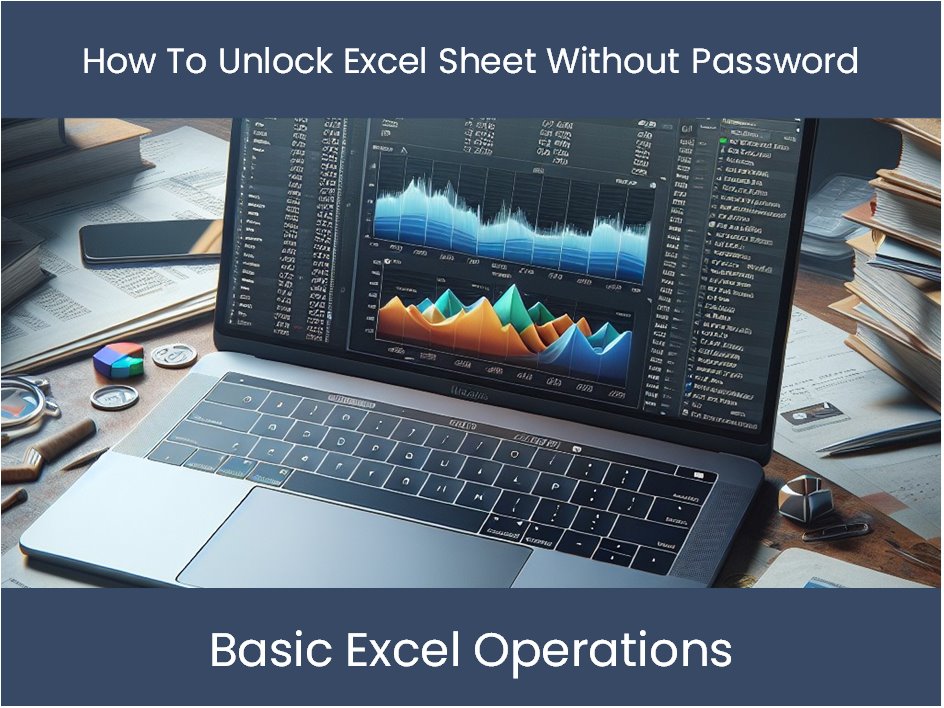Unlock Excel Sheets 97-2003 Without Password Easily

If you've ever encountered a password-protected Excel file from versions 97 to 2003, you might have felt like you've hit a brick wall. Whether you've forgotten the password, lost the document's access details, or inherited a file without the password, fear not. This guide will show you how to unlock these old Excel sheets with ease, no matter your technical expertise.
Understanding Password Protection in Old Excel Files

Excel 97-2003 used a different method of encryption than modern versions. These files, often with the .xls extension, can be secured with a password at two levels:
- Workbook Protection - Prevents the structure or windows from being modified.
- Worksheet Protection - Limits what actions users can perform within a sheet.
Why You Might Need to Remove Password Protection

There are legitimate reasons for removing password protection:
- Lost or forgotten passwords.
- Company policy changes regarding document security.
- To transfer data between systems where password-protected files are not allowed.
- Emergency access due to urgent changes needed by a third party.
Methods to Unlock Old Excel Files

Method 1: Manual Hacking

This approach involves manually changing the file extension and editing the file contents. Here’s how:
- Change the file extension from .xls to .zip or .rar (compression software).
- Open the compressed file with a text editor to locate the password-protected content.
- Find and edit the password field to ‘Password=’ or simply remove it.
- Save the file and restore the .xls extension.
🔒 Note: This method may corrupt the file if not done correctly. Be cautious and back up the original file first.
Method 2: Using VBA Scripts

VBA (Visual Basic for Applications) scripts can unlock sheets within an Excel file. Here’s how to do it:
- Open a new Excel workbook.
- Press Alt + F11 to open the VBA editor.
- Insert a new module and paste this code:
Sub UnProtect()
Dim i As Integer, j As Integer, k As Integer
Dim l As Integer, m As Integer, n As Integer
Dim i1 As Integer, i2 As Integer, i3 As Integer, i4 As Integer
Dim i5 As Integer, i6 As Integer
On Error Resume Next
For i = 65 To 66: For j = 65 To 66: For k = 65 To 66
For l = 65 To 66: For m = 65 To 66: For i1 = 48 To 57
For i2 = 48 To 57: For i3 = 48 To 57: For i4 = 48 To 57
For i5 = 48 To 57: For i6 = 48 To 57
ActiveSheet.Unprotect Chr(i) & Chr(j) & Chr(k) & _
Chr(l) & Chr(m) & Chr(i1) & Chr(i2) & Chr(i3) & Chr(i4) & Chr(i5) & Chr(i6)
Next: Next: Next: Next: Next: Next
Next: Next: Next: Next: Next: Next
End Sub
- Close the VBA editor and run the macro to attempt unlocking the sheet.
👨💻 Note: This script tries a brute-force approach and might not work for complex passwords.
Method 3: Using Third-Party Tools

Specialized software designed to unlock Excel files can be very effective:
- Excel Password Recovery Tool: Searches for and recovers lost passwords.
- Advanced ZIP Password Recovery: Allows you to remove password protection from archived files.
Legal and Ethical Considerations

Before unlocking an Excel file:
- Ensure you have the legal right to access or modify the file’s content.
- Think about the potential consequences of unlocking someone else’s file without their permission.
- Be mindful of the ethical implications of bypassing security features.
Final Thoughts

While it’s tempting to unlock files quickly, taking the time to understand the context and ethical implications is crucial. In conclusion, this guide has provided you with several ways to unlock old Excel sheets from versions 97-2003, each with its merits and potential pitfalls. Whether you choose manual methods, VBA scripts, or third-party tools, remember to back up your files, act legally, and consider the ethical ramifications.
Is it legal to unlock an Excel file?

+
It depends on your rights to the file. If you own the file or have permission to access its content, it can be legal. However, doing so without proper authorization can be illegal.
Can I recover a password instead of bypassing it?

+
Yes, some tools specialize in recovering lost passwords rather than removing protection. However, success depends on the complexity of the password and the encryption used.
What are the risks of using third-party tools?

+
Be cautious as some tools might embed malware or compromise your system security. Always download from reputable sources and scan the software for viruses before use.



